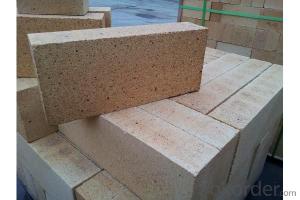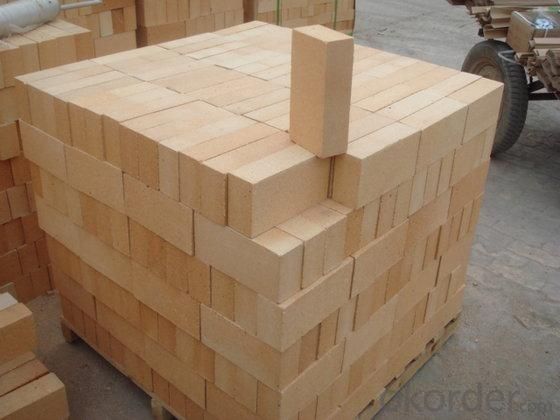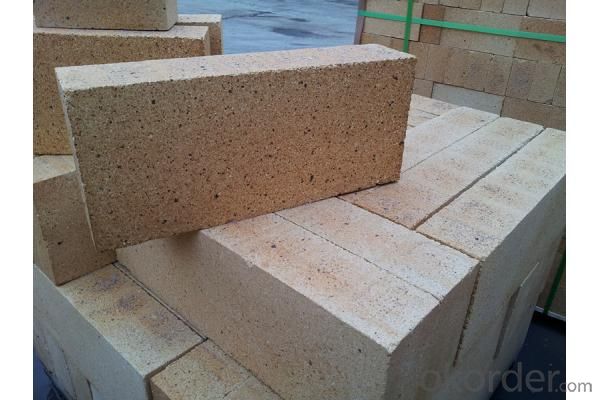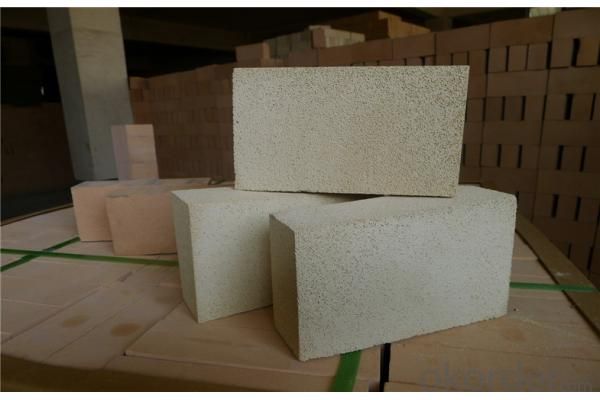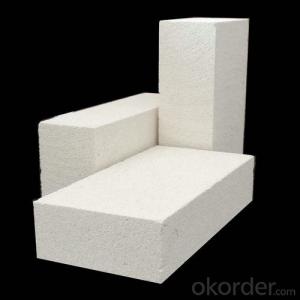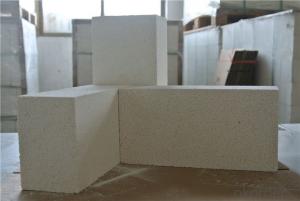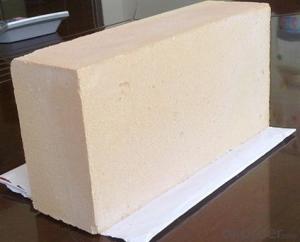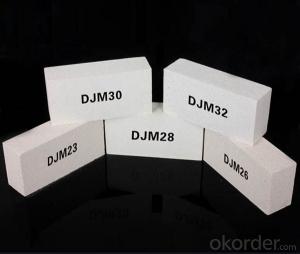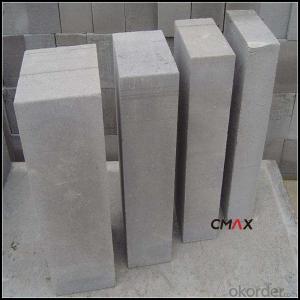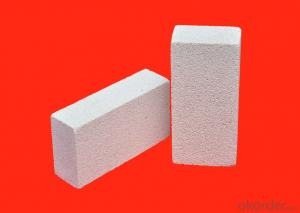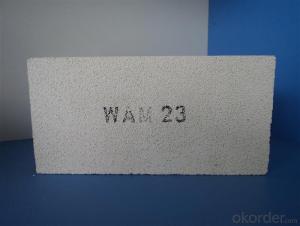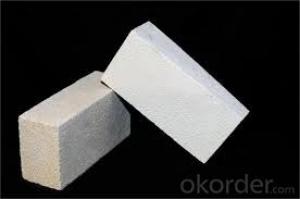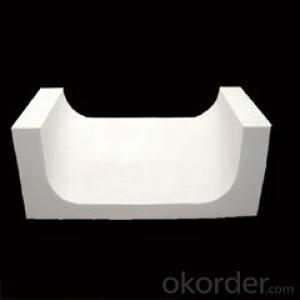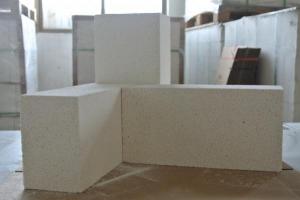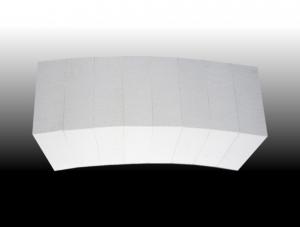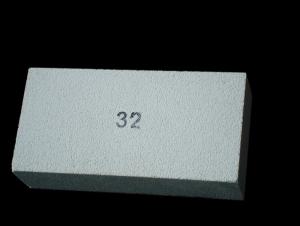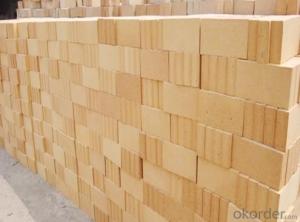Insulating Fire Brick - Silimanite Brick - Refractory Tape
- Loading Port:
- Tianjin
- Payment Terms:
- TT OR LC
- Min Order Qty:
- 10 m.t.
- Supply Capability:
- 10000 m.t./month
OKorder Service Pledge
OKorder Financial Service
You Might Also Like
CNBM conforms strictly to the requirements of ISO 9000 quality control system during the production. MSDS is also available if you want. The thermal insulation fire clay brick meet with the requirements of ASTM & JIS standards. So please stay cool with our quality.
Application
Insulating Fire Brick are used for the lining of converter, alternating current arc furnace, direct Current arc furnace and the ladle slag line, etc.
Insulating Fire Brick Technical index
Brand Quality | JM23 | JM26 | JM28 | JM30 | JM32 | |
Bulk Density (g/cm3) | 0.52 | 0.78 | 0.88 | 1.03 | 1.25 | |
1.2 | 1.6 | 2.1 | 2.5 | 3.5 | ||
Modulus of Rupture (Mpa) | 0.9 | 1.4 | 1.6 | 2.1 | 2.1 | |
-0.5 | 1400℃ -0.4 | 1510℃ -0.5 | 1620℃ -0.9 | 1730℃ -0.9 | ||
Thermal Expansion 1100℃(%) |
0.5 |
0.7 |
0.8 |
0.9 |
1.1 | |
Thermal conductivity(W/m.k)
| 400℃ | 0.14 | 0.27 | 0.32 | 0.41 | 0.49 |
600℃ | 0.16 | 0.29 | 0.34 | 0.43 | 0.50 | |
800℃ | 0.18 | 0.31 | 0.36 | 0.44 | 0.51 | |
1000℃ | 0.20 | 0.33 | 0.38 | 0.45 | 0.53 | |
Al2O3 | 37 | 58 | 67 | 73 | 77 | |
Fe2O3 | 0.7 | 0.7 | 0.6 | 0.5 | 0.4 | |
Equipment
1 unit of Ceramic Abrasive (SG Abrasive) pilot production line
2 units of Compact grain Abrasive pilot production lines
1 unit of high-end coated abrasives (abrasive cloth) production line
2 units of Boron Carbide production lines
3 large flexible crushing and sieving lines for grit production lines
2 units of 2000KVA furnaces for Boron Carbide fusion
6 units of 5000KVA-10000KVA dumping type electric arc furnaces for Brown Fused Alumina fusion
Company Advantage
(1)Long Insulating Fire Brick manufacture history: 25 years manufacturer
(2)Advanced equipment
(3)Diversification of production standards: ISO ANSI FEPA JIS ASTM
(4)Flexible payment: T/T L/C D/P D/A
(5)Professional marketing team and after-sale service
(6)Free sample
FAQs
Q1 |
What’s the transport method? |
A1 | FCL delivery goods with wooden pallet or wooden case by sea; If LCL delivery, must with wooden case; Sometimes need open top, flat rack or bulk cargo. |
Q2 |
What’s the required payment term? |
A2 | Generally 30% TT as the prepayment, 70% TT before delivery. If need, 100% Irrevocable Letter of Credit or negotiation. |
Q3 |
Which country are our products exported to? |
A3 | Apart from entire Chinese market, the US, Russia, Japan, Korea, Australia and some Southeast Asian Nations. |
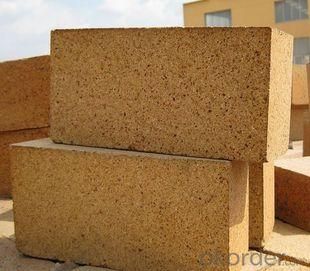
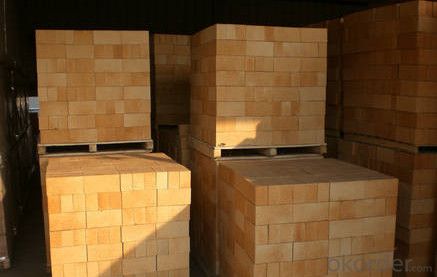
- Q: Are insulating fire bricks resistant to hydrogen sulfide?
- Yes, insulating fire bricks are generally resistant to hydrogen sulfide due to their high melting point and chemical stability.
- Q: What is the difference between cement foamed thermal insulation board and thermal insulating brick?
- Of course, the market now has a lot of insulation bricks, and some insulation bricks can only do external wall insulation, such as sand, aerated concrete blocks. Some also only do the interior wall insulation, such as gray aerated concrete blocks, and some insulation bricks directly to the base, thus omitting the internal and external insulation, such as concrete composite insulation block.
- Q: Can insulating fire bricks be used as a lining material for boilers?
- Yes, insulating fire bricks can be used as a lining material for boilers. Insulating fire bricks are designed to withstand high temperatures and provide excellent insulation, making them suitable for use in boiler linings.
- Q: Can insulating fire bricks be used in the construction of industrial dryers?
- Yes, insulating fire bricks can be used in the construction of industrial dryers. Insulating fire bricks are specifically designed to have low thermal conductivity, which means they are able to retain heat and prevent heat loss. This makes them an excellent choice for applications that require high temperatures, such as industrial dryers. Insulating fire bricks are made from lightweight materials such as clay, silica, and alumina, and are capable of withstanding temperatures of up to 3000°F (1650°C). They have excellent insulation properties, which help to reduce energy consumption and improve the overall efficiency of the industrial dryer. Additionally, insulating fire bricks are resistant to thermal shock, meaning they can withstand rapid temperature changes without cracking or breaking. This is particularly important in industrial dryer applications, where temperatures can fluctuate quickly. Overall, insulating fire bricks are a suitable choice for the construction of industrial dryers due to their low thermal conductivity, high temperature resistance, and ability to withstand thermal shock.
- Q: Are insulating fire bricks fireproof?
- Yes, insulating fire bricks are fireproof. They are specifically designed to withstand high temperatures and provide excellent insulation against heat.
- Q: Are insulating fire bricks suitable for insulation in petrochemical plants?
- Insulating fire bricks, which are composed of lightweight materials with exceptional insulating properties like ceramic fibers or lightweight refractory aggregates, are well-suited for insulation in petrochemical plants. These bricks possess a low thermal conductivity that effectively curbs heat transfer and provides insulation in high-temperature settings. In petrochemical plants, where the manipulation of flammable and hazardous substances occurs, maintaining proper insulation is of utmost importance for safety and efficiency. By withstanding extreme temperatures and delivering superb thermal insulation, insulating fire bricks effectively curtail heat loss and diminish energy consumption. Moreover, insulating fire bricks exhibit resistance to chemical corrosion, rendering them suitable for deployment in petrochemical plants frequently exposed to corrosive chemicals. Additionally, these bricks demonstrate durability and commendable mechanical strength, enabling them to endure the harsh conditions typically encountered in petrochemical plants. All in all, insulating fire bricks emerge as the ideal choice for insulation in petrochemical plants due to their capacity to withstand high temperatures, exceptional thermal insulation properties, resistance to chemical corrosion, and remarkable durability.
- Q: Do insulating fire bricks require a refractory mortar for installation?
- Yes, insulating fire bricks typically require a refractory mortar for proper installation. Refractory mortar helps to secure the bricks in place, fill any gaps or voids, and provide additional insulation and strength to the overall structure.
- Q: Can insulating fire bricks be used for insulation in aluminum smelters?
- Yes, insulating fire bricks can be used for insulation in aluminum smelters. Insulating fire bricks are designed to withstand high temperatures and provide excellent thermal insulation, making them suitable for use in aluminum smelters where extreme heat is generated.
- Q: Are insulating fire bricks resistant to vibrations?
- Insulating fire bricks, although renowned for their exceptional thermal insulation properties, usually lack resistance against vibrations. Typically, these bricks are crafted from lightweight materials like ceramic fibers, vermiculite, or perlite, which do not possess notable capabilities to dampen or absorb vibrations. Hence, if a particular application necessitates vibration resistance, it would be prudent to explore alternative materials or designs that are better suited for such circumstances.
- Q: Can insulating fire bricks be used for insulation in chemical storage tanks?
- Yes, insulating fire bricks can be used for insulation in chemical storage tanks. These bricks have excellent thermal insulation properties and can withstand high temperatures, making them suitable for insulating tanks that store chemicals.
Send your message to us
Insulating Fire Brick - Silimanite Brick - Refractory Tape
- Loading Port:
- Tianjin
- Payment Terms:
- TT OR LC
- Min Order Qty:
- 10 m.t.
- Supply Capability:
- 10000 m.t./month
OKorder Service Pledge
OKorder Financial Service
Similar products
Hot products
Hot Searches
Related keywords

